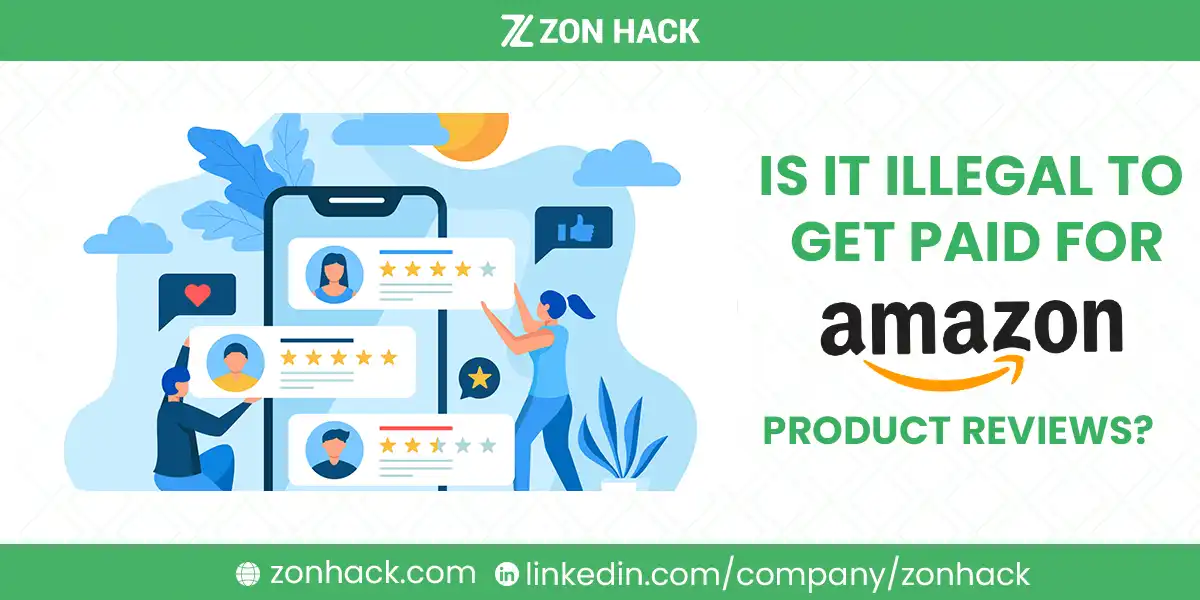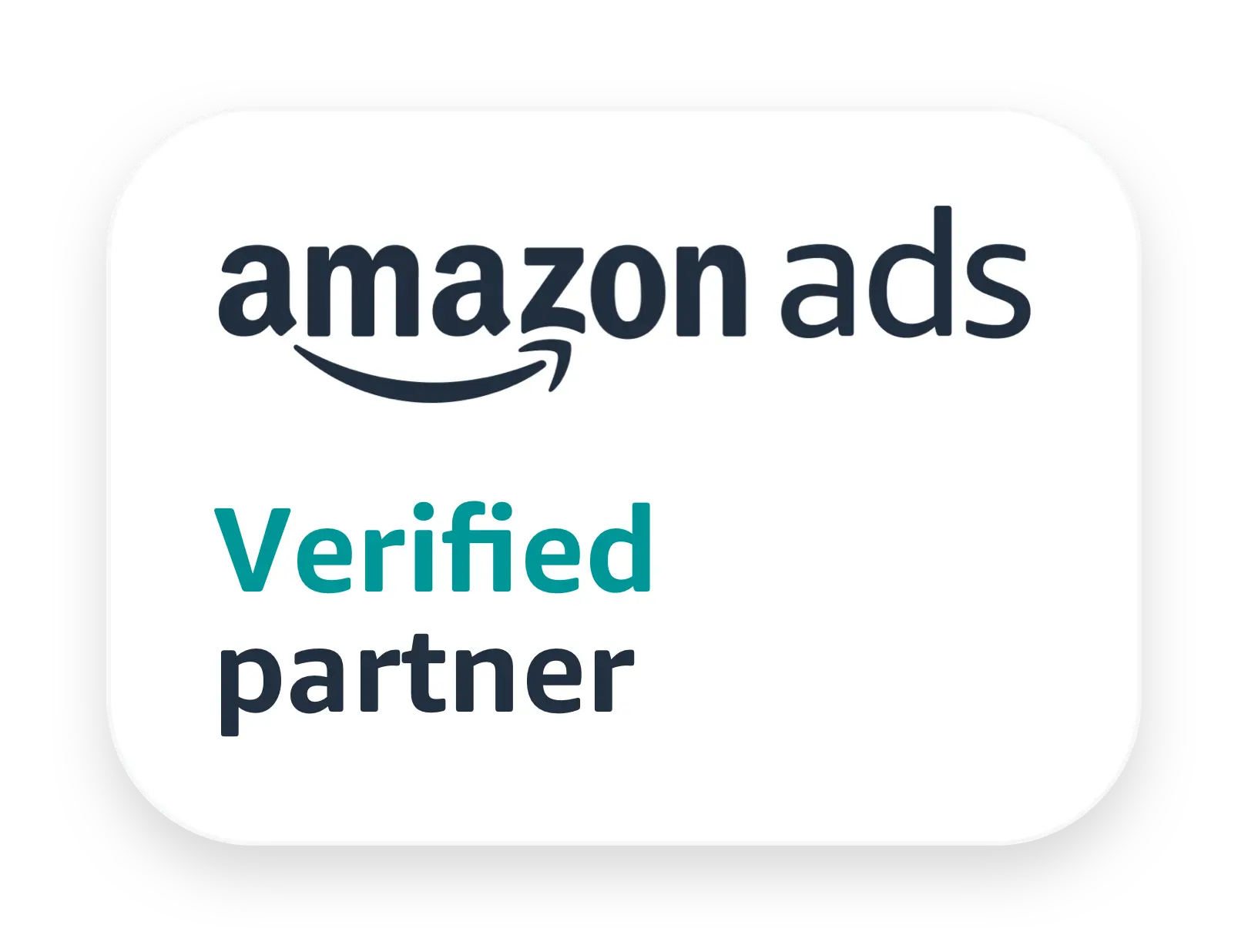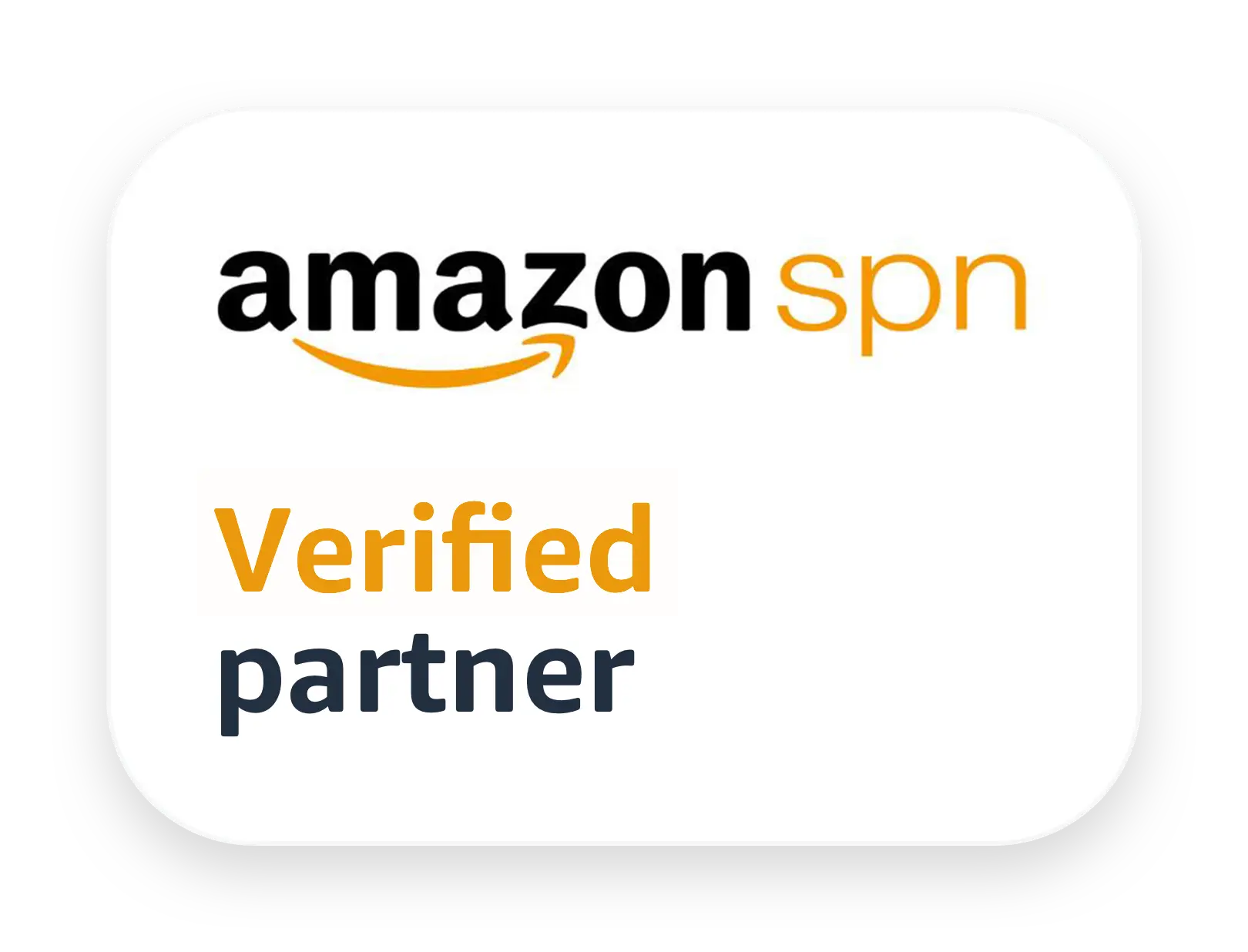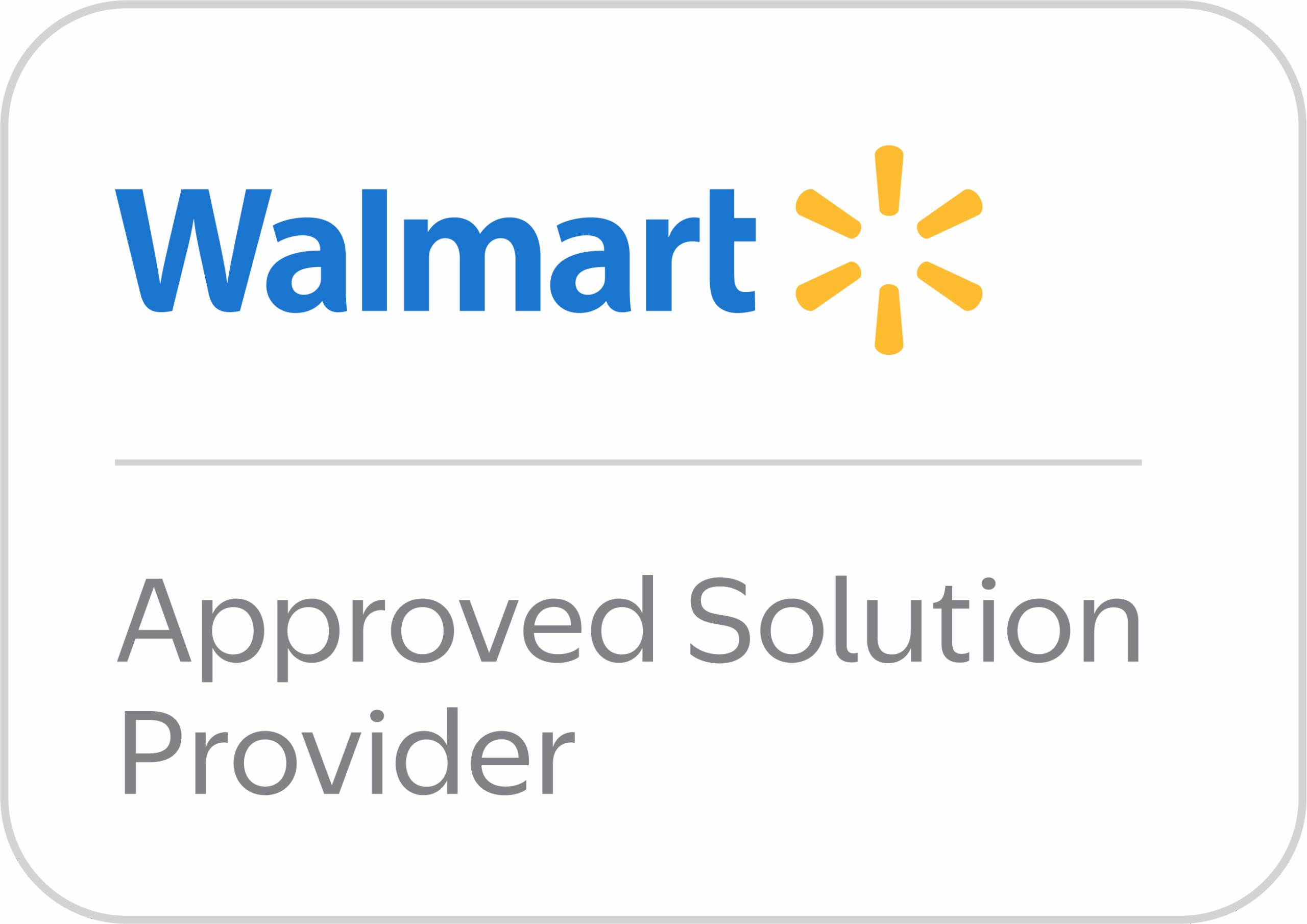In the world of Amazon, reviews aren’t just opinions—they’re currency.
When shoppers browse the marketplace, star ratings and review counts are often the tipping point between a sale and a pass. Reviews impact search rankings, shape conversion rates, and build trust in ways that ads or product images never could. It’s no surprise that sellers go to great lengths to generate them.
But what happens when money or free products are involved? Is it legal to get paid for writing an Amazon review? Can sellers offer incentives to speed up the review process? And how strict is Amazon about these practices?
At ZonHack, we help Amazon sellers grow their businesses the right way—without risking account suspensions, lawsuits, or lost credibility. This guide breaks down what’s allowed, what’s illegal, and what ethical alternatives exist for sellers and reviewers alike.
Amazon’s Stance on Paid Reviews: Strict and Non-Negotiable
Amazon has drawn a hard line when it comes to review manipulation. Its Customer Reviews Policy makes it crystal clear: reviews must be authentic, voluntary, and unbiased.
What Amazon Explicitly Prohibits:
- Offering compensation (money, gift cards, discounts, or free products) in exchange for a review
- Creating fake accounts to leave reviews
- Reviewing your own products, or having employees/friends do it
- Asking for only positive reviews, or editing what someone writes
- Review exchanges with other sellers (“I review yours if you review mine”)
This crackdown began in earnest in October 2016, when Amazon banned incentivized reviews across the platform. Before that, it was common for sellers to offer a free product in return for a review—sometimes requiring a 5-star rating.
Today, the Amazon Vine Program is the only sanctioned way for brands to offer free products in exchange for on-platform reviews.
Consequences of Violating Amazon’s Review Policy:
Violating Amazon’s policies can trigger immediate and severe penalties—even if the violation was unintentional.
Here’s what can happen:
- Amazon removes fake or incentivized reviews
- Your selling account can be suspended
- Amazon may withhold payouts
- Products can be delisted from search results or removed entirely
- Shoppers who repeatedly break review rules can lose review privileges permanently
And Amazon doesn’t just stop at penalties.
In 2015, 2016, and 2018, Amazon filed lawsuits against multiple sellers, manufacturers, and “review farms” that offered paid review services—signaling how seriously it treats this issue.
ZonHack Insight:
Even if you’re not directly paying for reviews, using third-party services that offer “review generation” or “product feedback” can get you flagged. Amazon’s algorithms and moderation teams are always improving. If a pattern emerges, your entire account may be reviewed or restricted.
Amazon Vine Program: The Legal Alternative for Free Products
So, is there any way to give free products for a review on Amazon? Yes—but only through the Amazon Vine Program.
This is Amazon’s official reviewer network, designed to help brands get honest feedback while maintaining review quality and policy compliance.
Key Details:
- Invitation-only: You can’t just sign up as a reviewer or vendor.
- Vine Voices: Amazon selects reviewers based on their history of leaving helpful, detailed reviews.
- No review manipulation: Sellers can’t contact Vine reviewers or influence what they write.
- Transparent labeling: Reviews are marked with a “Vine Customer Review of Free Product” badge.
For sellers, Vine is particularly useful during new product launches, where social proof is often the missing link to building momentum.
And unlike paid review schemes, Vine is completely legal and Amazon-approved—if used correctly.
Legal Requirements: FTC Guidelines and Disclosure Laws
Beyond Amazon’s rules, there’s another layer: U.S. law. And the penalties can be even more serious.
The Federal Trade Commission (FTC) regulates all forms of endorsements and influencer marketing in the United States. If you’re getting paid, receiving products, or otherwise compensated for a review, the FTC wants consumers to know.
What the FTC Requires:
- Disclosure of Material Connection
If there’s any relationship between the reviewer and the seller—money, product, discount, or even a personal connection—it must be disclosed. - Clear and Prominent Disclosure
Disclosures should be immediately visible, in plain language. Not buried in footnotes, not hidden on a separate page. - No Strings Attached
Compensation cannot come with a condition of a positive review. The review must be honest, even if it’s critical.
According to the FTC:
“If there’s a connection between an endorser and the marketer of a product that might materially affect the weight or credibility of the endorsement… it must be clearly and conspicuously disclosed.”
What Happens If You Break the Rules?
- FTC enforcement actions
- Civil fines and legal penalties
- Brand liability: The seller can be held responsible, even if the reviewer is the one who failed to disclose.
- Loss of trust: Public exposure of non-compliance damages brand equity and long-term sales.
ZonHack Tip:
We help Amazon brands structure review and influencer strategies that comply not only with Amazon’s rules but also FTC regulations. From disclosure templates to outreach scripts—we make sure your campaigns are both effective and compliant.
Paid Reviews vs. Fake Reviews: Know the Difference
Many people conflate paid reviews with fake reviews, but they are not the same—at least not legally.
| Paid Reviews (With Disclosure) | Fake Reviews |
| Real user tests the product | Reviewer never used the product |
| Shares a genuine experience | Feedback is fabricated |
| Can be legal if disclosed properly | Illegal and deceptive |
| May appear outside Amazon (blog, YouTube) | Often posted directly on Amazon to manipulate rankings |
Here’s the key distinction: even a real, disclosed, and honest review is not allowed on Amazon if it was incentivized outside of the Vine program.
So yes—paid reviews are legal in certain contexts, but never on Amazon.com unless it’s through Vine.
Risks and Ethical Concerns of Non-Compliant Paid Reviews
While the idea of exchanging compensation for product reviews might seem like a harmless shortcut, the consequences can be far-reaching and severe—especially when done improperly.
Trust Is Fragile
In today’s digital marketplace, consumer trust is currency. A single misleading review—especially one that’s discovered to be paid or biased—can spark backlash. Shoppers often rely on reviews as honest user feedback. If that trust is broken, it damages both the reviewer’s and the brand’s credibility.
Reputation Damage Can Be Long-Term
Amazon sellers who engage in review manipulation risk more than policy violations. They jeopardize long-term brand equity. Once exposed, recovery is difficult. The internet doesn’t forget. PR nightmares from fake or paid reviews can ripple across social media, news outlets, and buyer forums.
Skewed Feedback Leads to Poor Products
One hidden risk of incentivized reviews is internal. If every piece of feedback is inflated just to please the brand, product teams lose access to real insights. The result? Flawed products that fail to evolve based on genuine customer needs.
Amazon Doesn’t Tolerate Missteps
Even if you’re not directly involved, association with manipulated review networks can trigger platform penalties. Amazon deploys both automated systems and manual audits to detect violations. One flagged review could put your entire seller account under scrutiny, leading to:
- Product de-ranking
- Loss of Buy Box privileges
- Account suspensions or bans
ZonHack Perspective: We’ve helped sellers recover from compliance issues caused by third-party “review services.” Prevention is always cheaper than reinstatement. Our team ensures your campaigns stay clean, compliant, and scalable.
Legitimate Ways to Earn Money or Free Products Related to Amazon
Here’s the good news: you can still monetize your opinion legally—just not by posting incentivized reviews on Amazon.
Let’s explore ethical, Amazon-compliant alternatives for reviewers and influencers:
Amazon Vine Program (As Discussed Above)
The Vine program remains the gold standard for legal product-for-review opportunities. While invite-only, it’s transparent, tracked by Amazon, and ensures unbiased content through its internal structure.
Blog & YouTube Reviews: Off-Amazon, On Your Terms
Creating independent product reviews on platforms like YouTube, personal blogs, or newsletters allows you to speak freely while earning through:
- Amazon Associates (Affiliate Marketing): You earn commission when readers click and buy via your affiliate link.
- Sponsored Posts: Brands may pay for placement or features.
- Display Ads: Monetize pageviews with programs like Google AdSense or Mediavine.
Important: You must disclose any sponsorships or gifts in the review content, clearly and up front. The FTC requires it.
Social Media Influencing: Instagram, TikTok, Pinterest
Influencers can review Amazon products on their own social media as long as the review isn’t posted on Amazon. Compensation or gifted items are allowed—again, disclosure is mandatory.
This route is particularly popular with micro-influencers who can build trust with niche audiences through:
- Unboxings
- “First Impressions”
- Honest product breakdowns
Survey & Product Testing Platforms
Several platforms connect consumers with brands that need feedback. These include:
| Platform | Compensation | Review Location |
| Swagbucks | Points redeemable for cash/gifts | Survey or brand portal |
| User Interviews | $20–$150/test | Private research panel |
| Citrus Labs | Free health/wellness products | App-based survey |
These programs often prohibit posting public reviews, making them a legal and safe option.
Product Testing Panels
Brands frequently test new products through platforms like:
- The Insiders
- Betabound
- Field Agent
You try products for free and submit private feedback—not public Amazon reviews.
ZonHack Tip: Want to build early social proof legally? Consider external user testing and influencer outreach that feeds back into your product messaging—not Amazon reviews.
Best Practices for Reviewers (If Compensation is Involved)
If you’re a creator, influencer, or reviewer who receives products, here’s how to stay within legal and ethical boundaries:
Always Disclose Clearly
Say something like:
“I received this product for free in exchange for my honest opinion.”
Don’t hide it in the footer. Disclosures must be upfront and easy to see, per FTC requirements.
Share Real Experience
Use the product. Test it thoroughly. Then speak about your experience authentically—what worked, what didn’t, and who it’s right for. This builds trust with your audience.
Be Balanced
Avoid overly promotional language. Mention both pros and cons, even for sponsored items. It makes your review feel real.
Use Multimedia to Build Trust
Photos, videos, and side-by-side comparisons help your audience make informed decisions. Transparency isn’t just legal—it’s powerful.
ZonHack Insight: Whether you’re a brand or creator, we help structure ethical collaboration agreements, define messaging frameworks, and ensure each review touchpoint aligns with Amazon and FTC standards.
Bottom Line: What You Can and Cannot Do
So let’s bring it home.
Is it illegal to get paid for Amazon product reviews?
The answer depends on where and how you post:
| Scenario | Legal? | Allowed on Amazon? | Disclosure Required? |
| Paid review with no disclosure | ❌ Illegal | ❌ No | ❗ Yes |
| Paid review on Amazon (even with disclosure) | ❌ Not allowed | ❌ No | ✅ Required by FTC |
| Amazon Vine review | ✅ Legal | ✅ Yes | 🔁 Built-in disclosure |
| Paid review on blog/YouTube | ✅ Legal | ❌ Not on Amazon | ✅ Required |
| Gifted product, no money, reviewed on Instagram | ✅ Legal | ❌ Not on Amazon | ✅ Required |
The Bottom Line
- Don’t accept payment or gifts for Amazon reviews—unless through Vine.
- Disclose any compensation or gifts when reviewing elsewhere.
- Don’t manipulate feedback or hide your relationships.
- Build trust, not shortcuts.
ZonHack helps brands do exactly that—create effective marketing strategies that stay compliant with Amazon’s evolving landscape and FTC laws.
Need Help Growing Your Brand Without Breaking the Rules?
Whether you’re a seller aiming to build legitimate social proof or a content creator navigating FTC disclosures, ZonHack can help.
We specialize in:
- Amazon Vine Enrollment Support
- Influencer Campaign Structuring
- External Review Generation (via YouTube, social, blogs)
- Amazon PPC + Product Listing Optimization
- Account Health and Compliance Consulting
Grow faster. Stay compliant. Build trust.
Partner with ZonHack today
FAQ: Common Questions About Amazon Reviews and Legal Risks
Q: Can I review a product on Amazon if I got it for free from the seller?
A: Not unless it’s through the Amazon Vine program. Any review resulting from a free product outside of Vine violates Amazon’s policy, even with disclosure.
Q: What happens if I get caught posting a paid review on Amazon?
A: Amazon may remove the review, suspend your account, ban you from future reviews, or take legal action. It’s not worth the risk.
Q: Can I still talk about Amazon products on my blog or YouTube?
A: Yes, absolutely. Just ensure you disclose compensation, and don’t post the same review on Amazon.Q: Are there platforms that legally pay me to test products?
A: Yes—platforms like Swagbucks, User Interviews, and The Insiders offer legal alternatives. You provide feedback privately or off-Amazon.




